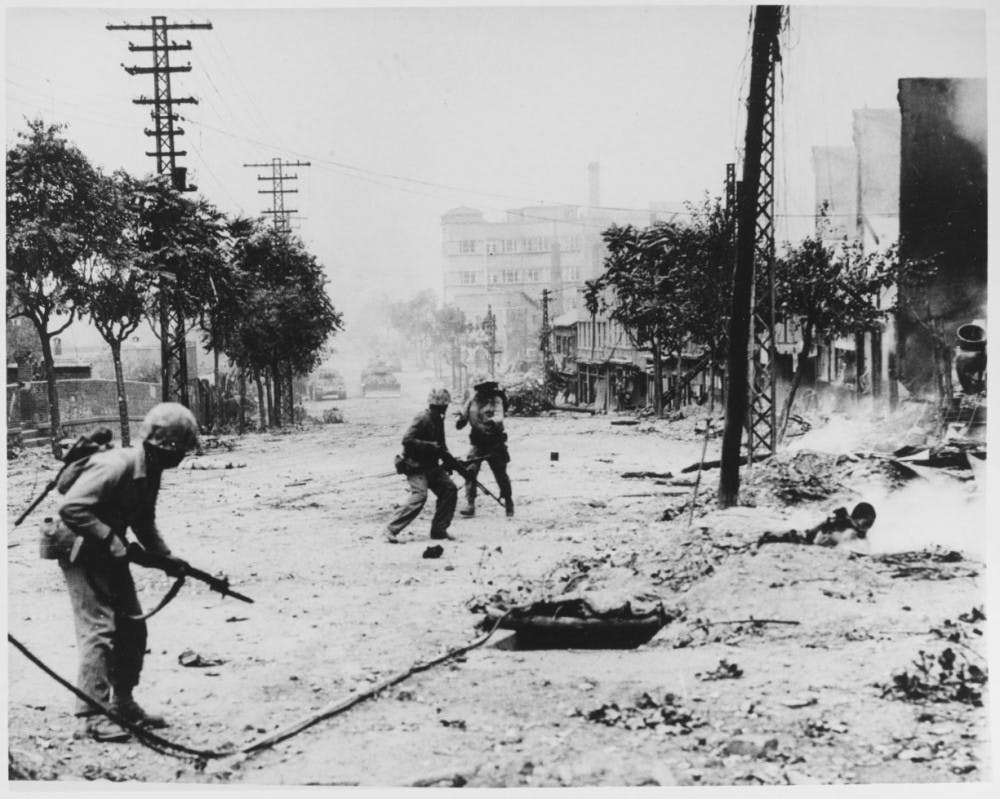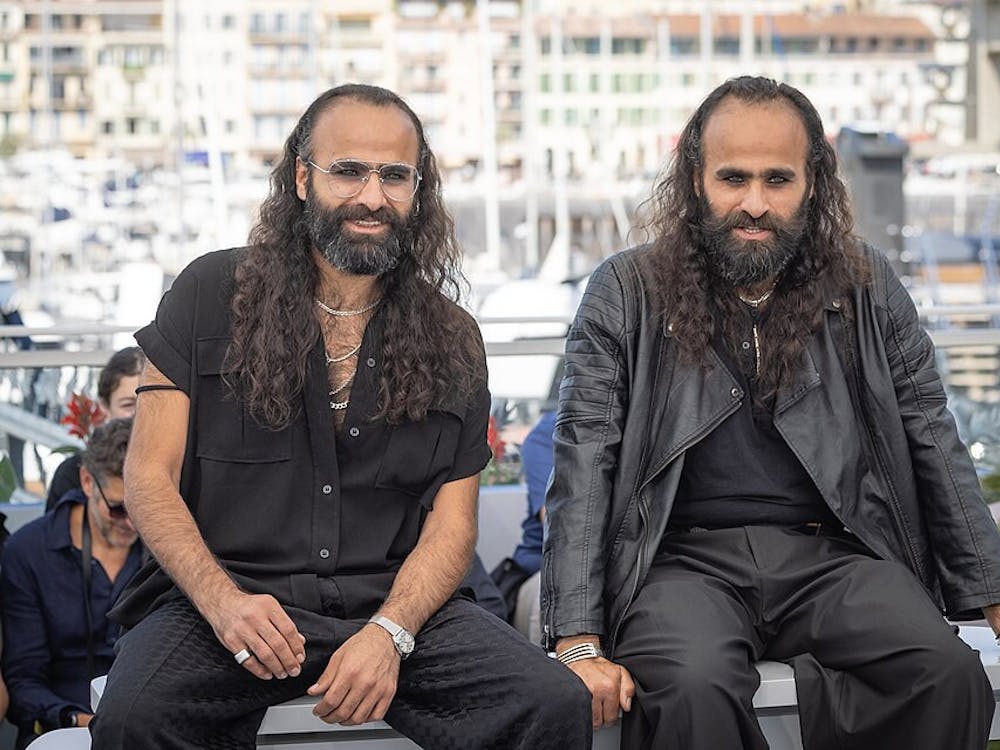Liberty in North Korea JHU (LiNK), a student group under the umbrella organization of the same name, held its rescheduled screening of the 2004 South Korean film, Taegukgi: The Brotherhood of War, on Wednesday, May 1. Although I could not attend in person, I was able to watch the film on my own time.
War films tend to have a very binary view of one question: who are the victims and who are the oppressors? Very rarely do they give a nuanced portrayal of either side.
When adapting certain wars, this is often for a good reason. The atrocities and distorted principles of one side can be so heinous and inhumane as to make any attempt to empathize with them impossible or absurd. When they do extend empathy to the established oppressors, filmmakers do so because the oppressors bear a stronger resemblance to themselves.
As an American, I do not have enough historical background on the Korean War to assess how accurate the portrayal of North Koreans are in Taegukgi: The Brotherhood of War. This is not only because history has distorted our perception of North Koreans, but also because I cannot fully comprehend the political motivations behind the film.
Despite being a major war in both American and Korean history, this was the first film I had watched that had referenced the war. It was also the first historical drama I had watched that was set in Korea, and the film paints a picture of Korea that contrasts dramaticaly with its current image as a modern developed nation.
Directed by Kang Je-kyu, Taegukgi: The Brotherhood of War is about two brothers born in Seoul who are unwittingly forced into army service upon the outbreak of the Korean War in 1950. As a movie, Taegukgi has many obvious parallels with Saving Private Ryan, including a flashback structure that begins in the modern day. One of the brothers, Jin-seok, is surprised to find that army officials have found his brother’s human remains. It also shares that movie’s bleak tone.
Though many of the war scenes take place in beautiful environments, the film has no qualms about showing the utter human suffering of the war, lingering on bloody entrails and cutting rapidly to emphasize the disorientation of the battlefield.
Where the film begins to differ from more familiar war films is in its perspective on the soldiers and armies involved in the war. In this film, both North Korean and South Korean soldiers are portrayed as victims and aggressors alike.
Very little time is spent exploring the political particulars of the war; one day the war is a dream, and the next day it is on their doorstep. Rather, the film focuses on the emotional journeys of the the two brothers as they get to know soldiers on both sides of the army. For instance, Jin-tae attempts to save his brother Jin-seok from battle by making a promise that if he serves well for the South Koreans, his brother will get to leave.
However, when one of his family members is ousted as a potential communist, they both land in jail, and Jin-tae defects to North Korea. Jin-seok later defects as well, only to treated as though he were a spy in the North.
Throughout the film, encounters like these help challenge preconceived notions about people in the Korean War. From situation to situation, our alliances as viewers shift.
If there is one thing that lessens the quality of the film, it’s that it tends to be a bit overdramatic. Yet perhaps that is the point. The suffering of war pushes the characters to extremities. At one point, Jin-tae becomes a ruthless and emotionless killer whose conduct towards his enemies surprises even Jin-seok.
The film is about the Korean War, but the true battle in the film is between the two brothers. It ultimately calls into question whether they can still care for each other amidst the cruelty and depravity of war.
Though the two Koreas signed an armistice agreement in 1953, the war is techincally still going on. In an email to The News-Letter, Jessup Jong, president of LiNK expressed his hope that screening the movie would bring greater awareness to the history of the Korean War to fellow students at Hopkins.
“I hope this movie can foster a better awareness of history and current situation happening on the Korean peninsula. People often refer to the Korean War as a ‘Forgotten War,’ but this movie helps students remember the atrocities people have experienced during the war,” Jong wrote.





